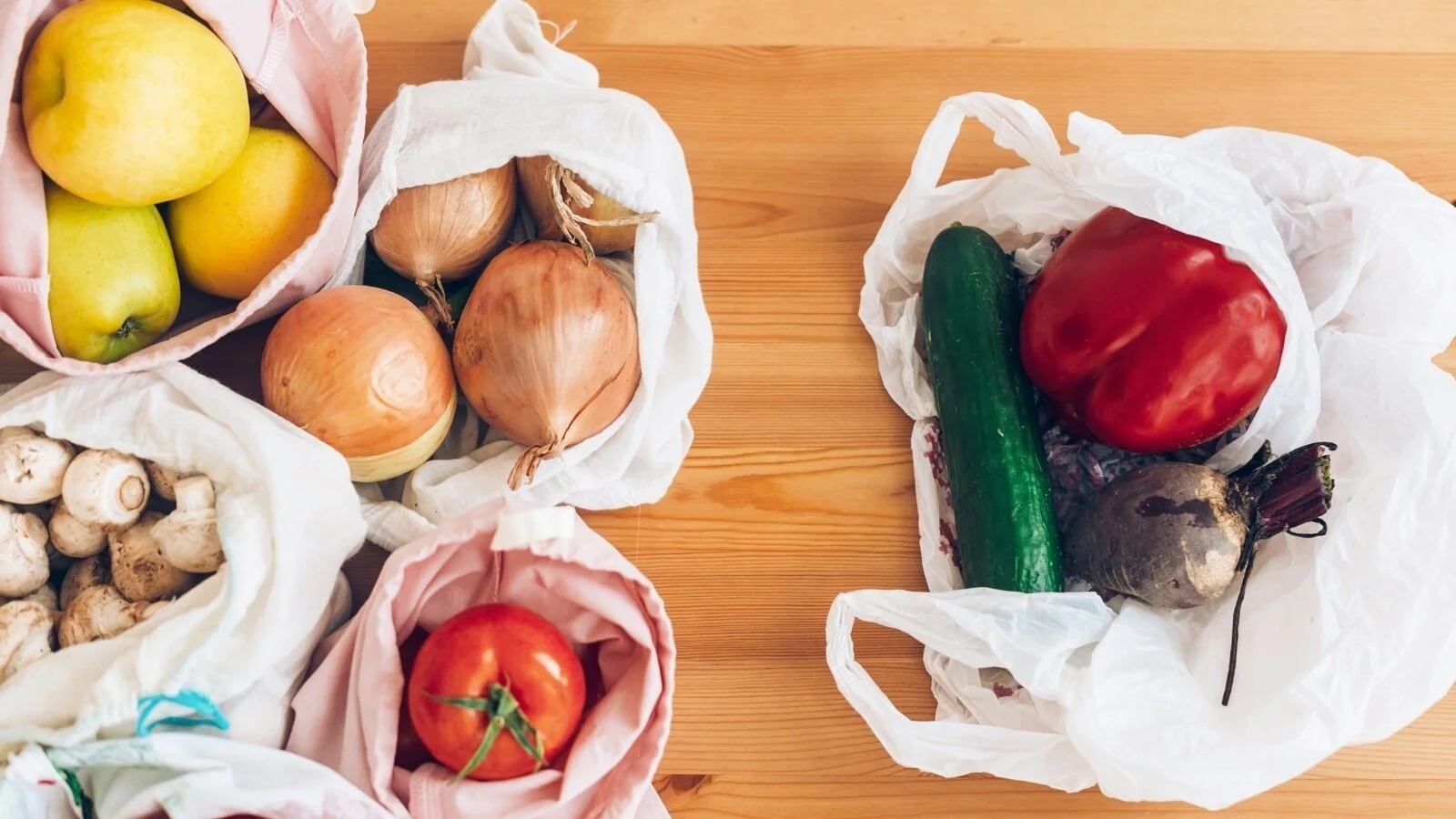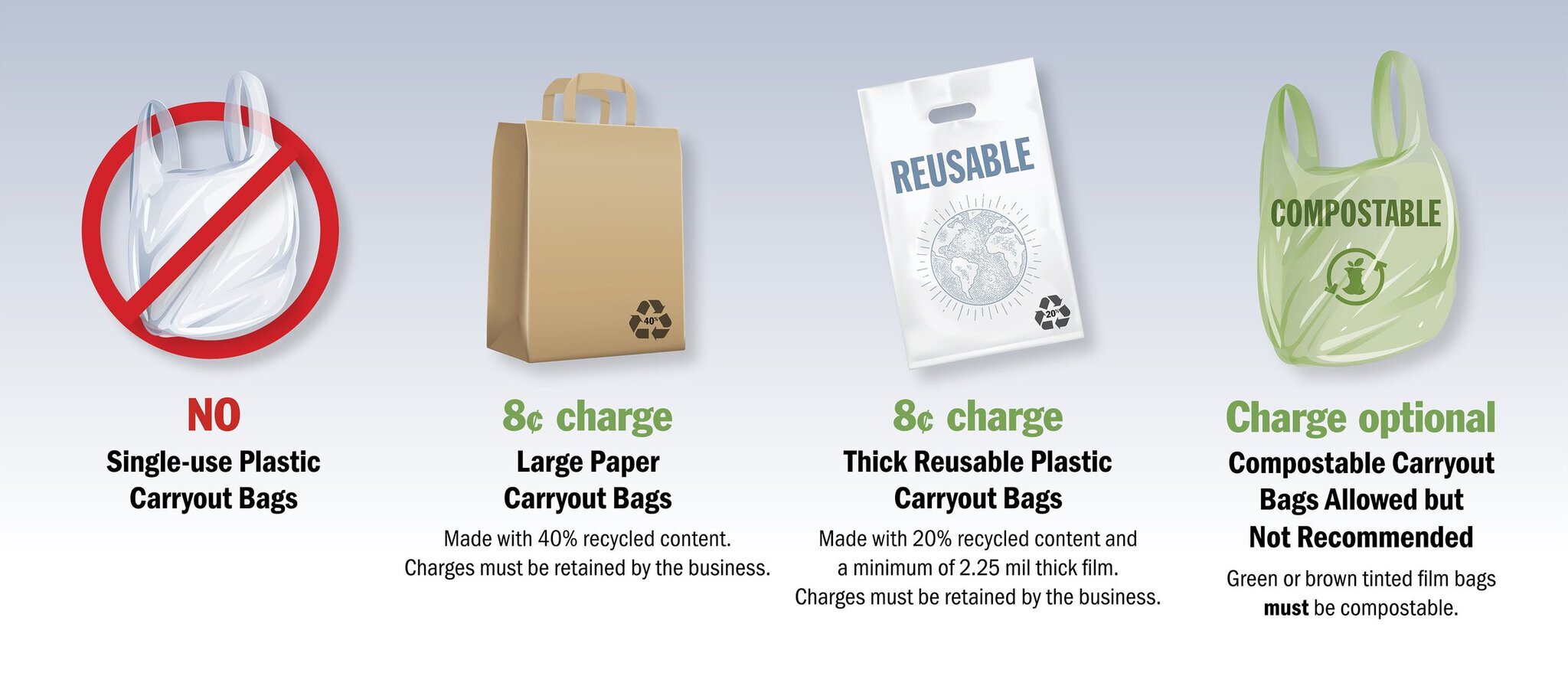All You Need To Know About Washington State’s New Plastic Bag Ban
On October 1st, 2021, Washington State Legislature’s new ban on single-use plastic bags went into effect. Lawmakers overwhelmingly supported the measure when it was voted on in 2019, as single-use plastics continue to strain our waste management systems and threaten our waterways and wildlife.
“Single-use plastic bags are not easily recyclable, which makes managing them at the end of their lives almost impossible,” said Laurie Davies, manager of Ecology’s Solid Waste Management Program. “Reducing their use will protect our rivers and streams, and help our recycling system run more efficiently.”
This is great news for our local environment and utilities programs. But what does this mean for you? Are there any exemptions to the ban? What if you forget to BYOBag?
We’ve got the answers for you right here. If you have a question we didn’t answer, let us know in the comments!
Photo Credit: Department of Ecology, State of Washington
Types Of Bags That Are (And Are Not) Allowed In Washington State Restaurants And Retailers
As the infographic shows, single-use plastic bags are now banned from being given out by grocery stores, retail shops, convenience stores, and other types of businesses. Some exemptions do apply, so read on to find out more.
Here are the approved types of bags that businesses can hand out to customers:
-Paper, which must be made with 40% recycled content and labeled “reusable”;
-Reusable plastic, which must be made with at least 20% recycled content, a minimum of 2.25 millimeter thick film, and must be labeled “reusable. In July 2022, reusable plastic bags must be made with at least 40% recycled content;
-Compostable, although not recommended as many local facilities do not accept them. The city of Seattle does have composting facilities, and these bags are able to be composted if disposed of in the green food and yard waste compost bin. Need to get a curbside compost bin? Head here.
Where Does The Bag Fee Money Go? Is It A Tax?
The law requires that restaurants and retailers charge the bag fee to the customer, and not absorb the cost, so that customers are aware of the new law and are encouraged to BYOB when possible. There are some groups exempted from the charge; read on to find out more.
As for the bag fee revenue, where does it go? “That 8-cent-charge is not a tax,” says the Department of Ecology’s website. “It is a sale kept entirely by the merchant to provide an incentive for customers to bring their own bags and to recoup the costs for the more durable compliant bags.”
The charge for each bag is a minimum of $0.08 cents, although businesses are allowed to charge more. So let’s save your money, the trees, and avoid plastic as much as possible with these practical tips.
Tips To Save Money and Avoid Bag Fees At Restaurants
All restaurants and food service counters are now required to use the approved paper, reusable plastic, or compostable bags for takeout and delivery.
Tip for takeout: If you’re ordering takeout, you can request “no bag” and BYOBag to avoid the fees.
If you are ordering delivery, you’ll likely be paying the bag fee.
Dine-in is a bit of a gray area; if you ask for a bag for your boxed up leftovers, its up to the discretion of the restaurant to charge you or not.
Tip for dining in: We recommend investing in these stainless steel tins for your dine-in leftovers. They’re leak-proof and easy to pack for lunch the next day.
Tips For Avoiding Bag Fees and Exempted Plastic Bags At The Grocery Store
All grocery, retail, and convenience stores are required to follow the same bag rules as restaurants. However, here’s where we see some of the exemptions come into play, and how you can avoid as much plastic as possible (even if it’s allowed and fee-free) in the grocery store.
Plan Ahead With Reusable Produce Bags
Those thin, single-use produce bags in the veggie aisles and single-use baggies used in the deli are exempt from the plastic bag ban. You’ll continue to see those in most grocery stores, and no fee is applied for these types of bags. But since they’re still single-use, and pose the same strains on local utilities and the environment, here are some tips to avoid them, too.
Tip for produce: We recommend these easily washable and reusable organic cotton produce bags! Just toss them inside your bigger tote bags so you’re always prepared for the grocery store. Keep a stash of reusable bags in your trunk, a couple in your backpack or purse, or where ever makes the most sense for your lifestyle and you’ll be prepped and ready for any unplanned stop to the store.
Other Exemptions For Single-Use Plastic Bags And Groups Exempted From Bag Fees
In an effort to eliminate negatively impacting low-income and marginalized groups with the bag ban, some exemptions for certain groups and establishments have been made.
“Food banks and pantries, as well as individuals receiving food stamps, WIC, SNAP, or other government assistance are not subject to the 8-cent charge,” the Department of Ecology states.
Other single-use plastic bags are exempt from the law as well, including bags for prescriptions, and newspaper or dry-cleaning bags.
How The New Bag Ban Will Be Enforced
Washington’s Department of Ecology aims to educate both business owners and consumers of the many benefits of the new law, and “it intends to seek voluntary compliance, though businesses that repeatedly violate the rule may face a $250 fine,” according to the Seattle Times.
“Businesses are allowed to use up their existing inventories of plastic bags, though the Department of Ecology says they may need to provide invoices to prove they were purchased before Oct. 1.”
Toolkit For Businesses Available In Many Languages
The Department of Ecology developed a toolkit available in 17 different languages to help businesses understand the new law, and to help relay the info to their customers.
The toolkits include a variety of materials that are customizable for individual restaurants and retailers, including flyers, Bring-Your-Own-Bag and point-of-sale signage, and web graphics. They are available for download in PDF and InDesign formats so they can be branded, printed, and shared by businesses and local governments.





